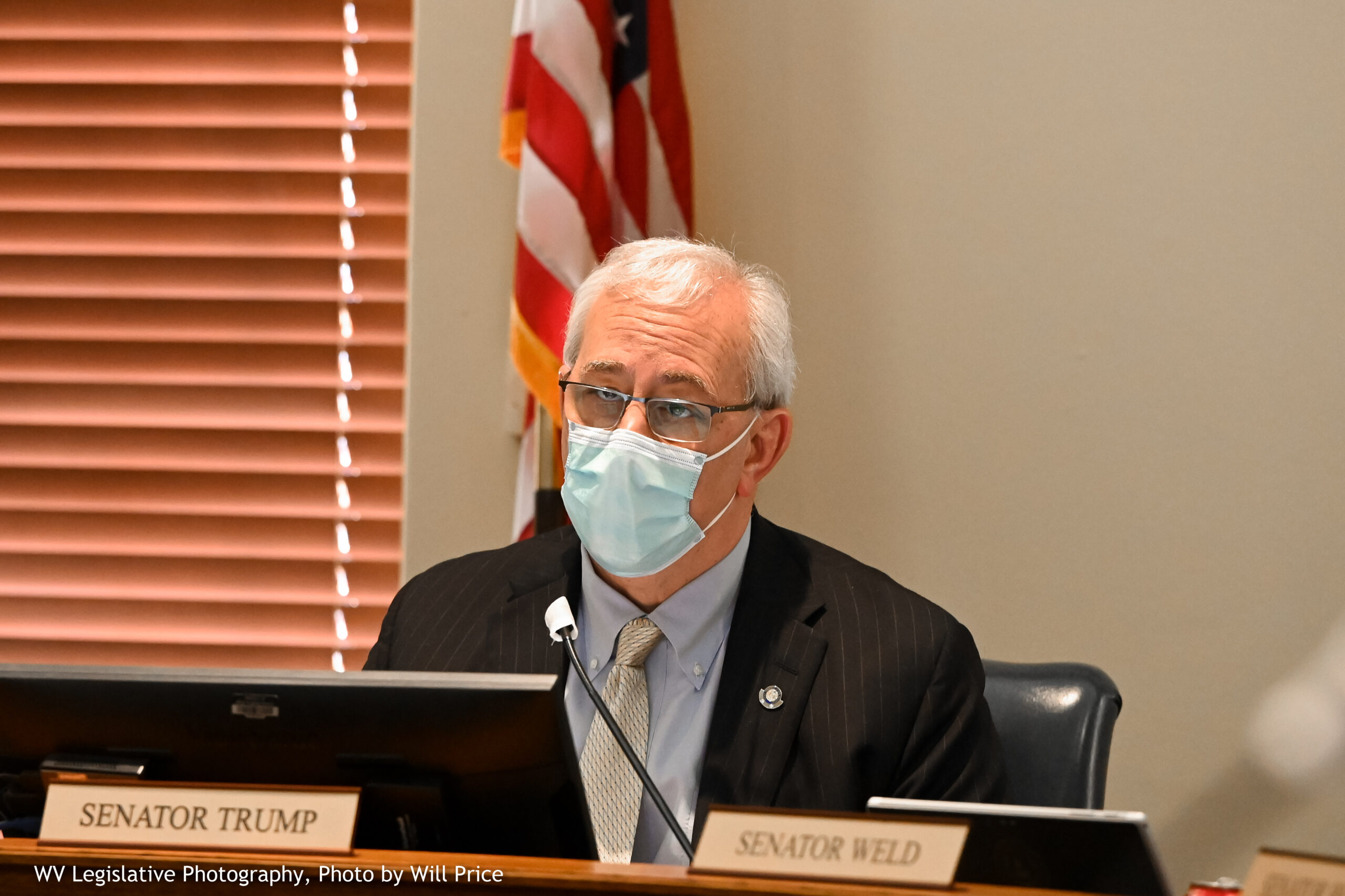MORGANTOWN – Senate Judiciary Monday approved a bill expanding and improving the medical cannabis program. The committee also essentially gutted a House bill intended to reign in the governor’s emergency powers.
SB 231 is the medical cannabis bill. It adds some new medical conditions to the list of those approved for treatment via medical cannabis, in keeping with what some other states are doing, committee counsel said.
It trimmed some of the required courses medical practitioners must take in order to qualify to certify patients. And through an amendment offered by Sen. Mike Woelfel, D-Cabell, it cut the hours of required continuing medical education in order to be able to certify from four to one.
Majority Leader Tom Takubo, R-Kanawha and a physician, supported the amendment, saying doctors aren’t giving a patient permission to use medical cannabis, they’re just verifying that a patient has one or more of the conditions in the program list. Through their prior training, they know how to identify those conditions.
Takubo said an hour is sufficient to keep up with any new developments in medical cannabis. The amendment was adopted.
The bill allows the Public Health Commissioner to authorize additional forms of medical cannabis, including dry leaf, plant, and edible and drinkable forms.
It extends interstate reciprocity authority. And it makes medical cannabis a bit more expensive by raising the tax from 10% to 20%.
Apart from Woelfel’s amendment there was no discussion and it passed in a divided voice vote. The bill is on second reading Tuesday.
Emergency powers bill
HB 2003 came to the Senate as a response to the COVID-19 state of emergency in effect since March 2020.
The House version says a state of emergency may last no longer than 60 days unless both houses of the Legislature pass a concurrent resolution to extend it. A state of preparedness may last no longer than 30 days unless extended by resolution. Senate Government Organization last week added an amendment clarifying its measures apply to the current COVID emergency.
Senate Judiciary removed its teeth by keeping the time limits but saying the governor can renew them without permission simply by notifying the Legislature. The Legislature can initiate or halt a state of emergency or preparedness by concurrent resolution – but this power is limited since the Legislature has to be in session to pass one.
It also now identifies two types of state of preparedness. One anticipates an actual emergency. The other anticipates something that may actually be good – the Boy Scout Jamboree was given as an example – but is beyond the ability of one or two counties to handle on their own.
It has provisions dealing with interference with the media and with the sale of firearms.
And it undoes prior efforts to apply the bill to the current emergency by having it take effect on any emergencies beginning after April 1.
It passed in a voice vote without discussion and will be on second reading Tuesday.
Tweet @dbeardtdp




